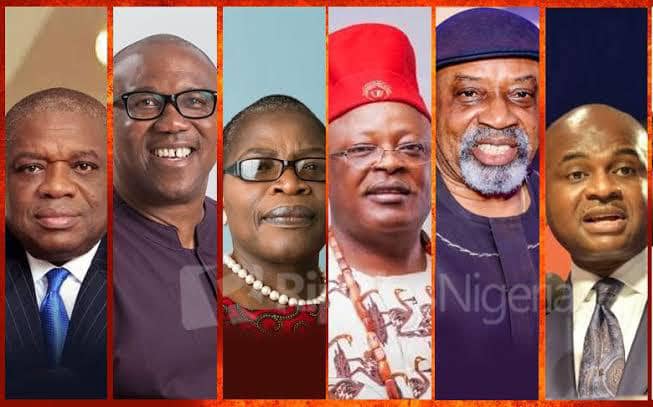The question of whether an Igbo presidency is possible in Nigeria is not only timely—it reflects a deeply rooted political and socio-economic reality. The marginalization of the Southeast, despite its immense contributions to national development, remains a subject of passionate discourse across the country. For decades, the Igbos have been at the forefront of commerce, innovation, and nation-building. They are among the most patriotic Nigerians, contributing to the growth of every region without tribal sentiment.

Yet, the irony persists: while the Igbo play a crucial role in national progress, they remain underrepresented at the highest levels of political leadership. This has stimulated a sense of political disillusionment, with many believing that systemic tactics have long conspired to prevent an Igbo presidency. However, the issue extends beyond presidential power—it is a matter of representation, equity, and the broader failure of the political class, including some Igbo politicians who prioritize personal gain over regional development.
Despite the establishment of Special Intervention Projects (SIP), also known as Zonal Intervention Projects (ZIP), many Southeast communities still suffer from infrastructural neglect. Lawmakers often argue for increased allocations to drive development, yet the reality on the ground remains unchanged. What have Igbo Governors are senators achieved with their allocations? Why does infrastructural development in the Southeast continue to lag?
The Development We Want for the Southeast. Development in the Southeast should transcend political rhetoric. It should involve:
Transitioning from a primarily agricultural economy to one driven by manufacturing and services.
Building critical infrastructure—roads, railways, power grids, and communication networks. Improving access to quality education and healthcare. Addressing poverty, inequality, and unemployment. Tackling corruption, weak governance, and insecurity through collaboration with security agencies. Investing in environmental sustainability and mitigating the effects of climate change. Promoting fair trade, foreign investment, and economic inclusion. Empowering the less privileged with financial and technical support.
The Southeast must be a region where wealth is shared, not hoarded—where the success of one uplifts many. It is not enough to be the richest in the family or community if no one else is empowered. That is a red flag that must be addressed.
The Igbo Incubation System. A shining example of the Southeast’s adaptability and the Igba-Boi apprenticeship system. This grassroots economic model has produced some of Nigeria’s most successful entrepreneurs—many of whom achieved greatness without formal university education. The system instills business ethics, financial literacy, and real-world training in commerce, mathematics, communication, and survival skills. This is why begging is virtually absent in most Southeastern cities—the youth are taught to create value, not to wait for handouts.
It’s time for those who have benefited from this system to give back meaningfully. The Southeast needs more than opulent mansions—it needs schools, hospitals, roads, digital hubs, and tech-driven enterprises. It needs a new generation of visionaries, unifiers, and investors committed to regional growth.
The call for an Igbo presidency is not rooted in tribal entitlement—it is rooted in the pursuit of justice, inclusion, and national progress. Giving every region a fair shot at the presidency is not a favor—it is a constitutional and moral imperative. However, even as we advocate for this, the Southeast must embrace self-determination through regional integration, industrialization, and accountable leadership.
The National Assembly—established under Section 4 of the Nigerian Constitution—wields significant legislative power, with 109 senators and 360 representatives. Yet, principal officers continue to allocate billions to themselves with little to show for it. The very ZIP projects initiated under President Obasanjo’s administration to close infrastructure gaps have become symbols of inefficiency and waste.
We must reimagine governance and hold our leaders to higher standards. Development, as seen globally, encompasses economic growth, human development, social welfare, and sustainability. The Southeast should strive to be a model of this holistic development.
No tribe is more Nigerian than another. Our collective identity must transcend ethnic and regional lines. We must support leaders based on competence, vision, and integrity—not ethnicity. Nigeria’s greatness lies in its diversity, and our future depends on equity, justice, and unity.
As we anticipate a better Nigeria, let us vote for real change—not just at the ballot box, but through our daily actions, values, and civic engagement. Ask not only what your country can do for you, but what you can do for your country—and your fellow citizens.
“Nigeria will be great again—and that greatness will be the result of our own making.”







